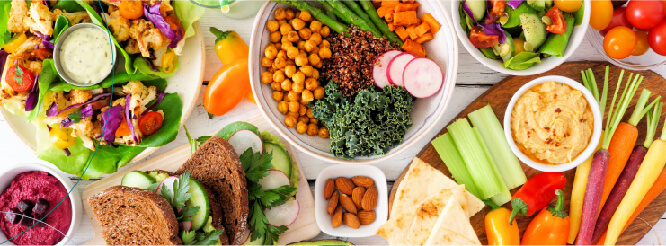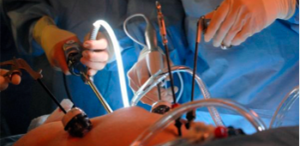
Bariatric surgery is a safe and effective treatment for obesity. Although each type of bariatric surgery achieves different outcomes of weight loss, the fact is that all of them do produce drastic weight loss in a very small amount of time. For instance, with a gastric sleeve surgery, a patient can expect to lose as much as 80% of his or her excess weight or as much as 30% of his or her total body weight, in just 6 months.
After bariatric surgery, your body goes through some major changes and taking proper care of it is vital to prevent any risk of developing malnutrition or anemia.
Going (or remaining) vegan after bariatric surgery is possible and can be safe, however, vegan patients after bariatric surgery ought to be highly committed to taking proper supplementation and sticking to a balanced nutrition plan.
Vegan and vegetarian diets can accomplish many different health benefits. Vegans and vegetarians might benefit a lower prevalence of coronary heart disease, dyslipidemia, hypertension, type 2 diabetes, obesity, and some types of cancer [1], and even more significant weight loss. However:
Alongside to their beneficial health effects, vegetarian diets may also bear risks for certain nutritional deficiencies, such as vitamin B12, vitamin D, zinc, iron, calcium, iodine, omega 3 fatty acids, and protein [1].
To prevent this from happening, people on vegan and vegetarian diets after bariatric surgery should follow strict nutritional recommendations, that, in many cases, doubles or triples normal vitamin and nutrients intake. Their diet should consider:
- A high protein intake of 60 to 90 gr per day [1]; protein supplementation may be necessary in patients who fail to reach this target.
- Lifelong supplementation of multivitamins and minerals such as:
- Iron
- Vitamin C
- Zinc
- Calcium
- Iodine
- Vitamin B12
- Vitamin D
- Omega 3 fatty acids
The dosis of each one of them will depend on many factors, such as the type of bariatric surgery, the patient’s ideal weight, her or his comorbidities, and her or his specific needs or dietary preferences.
Before taking any supplementation, talk to your doctor about your plans on going or maintaining vegan. Your bariatric surgeon will provide proper prescription for these supplements. Talk to your doctor openly about your plans and keep her or him updated with any changes or issues that arise.
An example for a daily meal plan for vegan patients after bariatric surgery is:
- Breakfast: Soy yogurt, 1 teaspoon of flaxseeds and ½ a banana
- Morning snack: Whole wheat bread with a spoon of hummus salad
- Lunch: Cup of chick peas, white rice, and cooked vegetable
- Afternoon snack: Small apple
- Dinner: 100 g of tofu steak and small vegetable salad with spoon of whole sesame tahini
- Night snack: Soy protein powder with glass of soy milk
For instance, the characteristics of this daily meal plan are: 1,161 kcal, 66 g of protein, 112 g of carbohydrates, 45 g of fat, and 20 g of fibers [1].
Although vegan patients more be at a higher risk of malnutrition or anemia due to poor eating habits, they face almost the same risks associated with bariatric surgery than non-vegan patients. Vegetarian and vegan diets can be as healthy as non-vegetarian diets, proper adherence to the dietary plan is vital to avoid any complications.
Adopting a vegan diet after bariatric surgery can be an excellent way to ensure a healthy and sustained recovery. The key is to focus on obtaining enough protein, vitamins, and essential minerals, which can be easily achieved with proper planning and the selection of nutrient-rich foods. Incorporating a variety of balanced vegan recipes not only helps keep the body nourished but also makes the recovery process more enjoyable. For example, a plant-based protein smoothie with spinach, banana, and almond milk, or a lentil soup with fresh vegetables, can be delicious and nutritious options for those looking to maintain their vegan lifestyle after surgery. Additionally, exploring new vegan recipes can open up a world of flavors and textures, making each meal an opportunity to nourish both body and soul.
Contact us
At LIMARP International Center of Excellence for obesity, we offer integral bariatric programs that treat obesity from a multidisciplinary approach. Our treatments include personalized nutritional guidance and dietary plans to meet every patient’s needs and goals through every phase of treatment, with long-term to follow-up. If you would like to know more, please call our phone (619) 270-8823 or contact us through this webpage or any of our social media sites.
References
[1] S. Sherf-Dagan et al., “Health and Nutritional Status of Vegetarian Candidates for Bariatric Surgery and Practical Recommendations,” Obes. Surg., vol. 28, no. 1, pp. 152–160, Jan. 2018, doi: 10.1007/s11695-017-2810-7.


